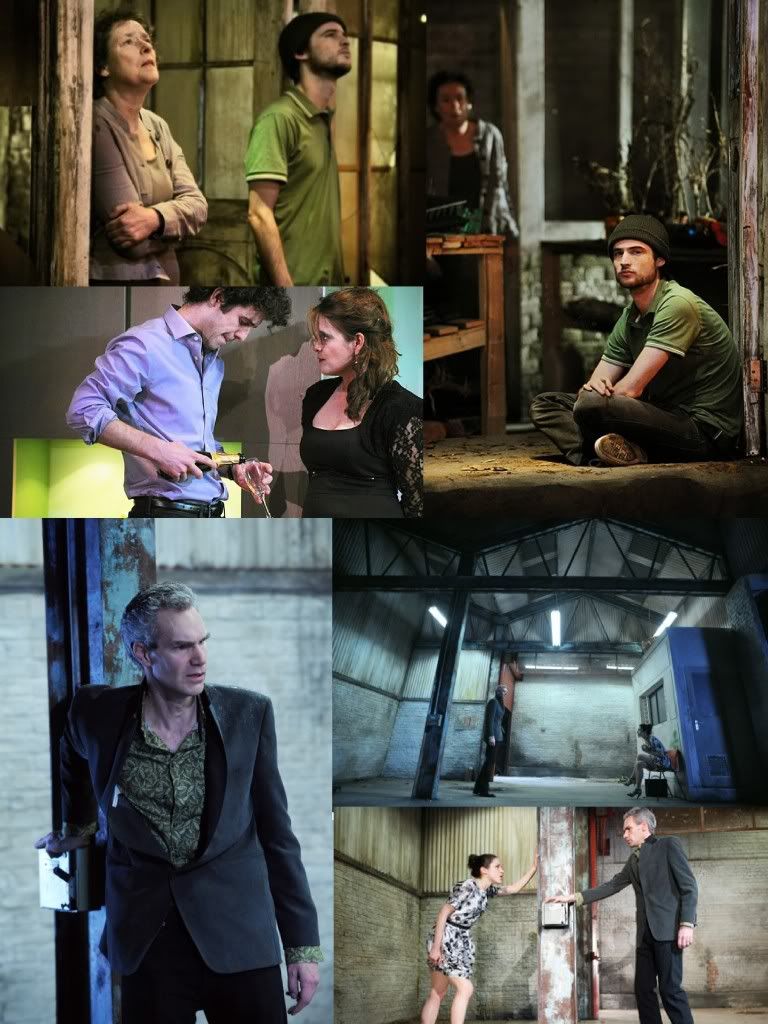This was a bit of an odd one as, despite being quite excited when I booked I went in with increasingly lowered expectations as various friends expressed their disappointment, dissatisfaction and frustration with the play. In the end, though, I came away feeling not exactly happy, certainly not like I’d been blown away but definitely like I hadn’t disliked it as much as everyone else.
I even quite liked some of it. I thought the first section was rather wonderful with Linda Bassett as Frieda being quirky and warm and worried, unravelling beautifully as a character – I’d have happily watched her story for much longer. I also enjoyed Tom Sturridge’s subtly unsettling performance as Harry (I’m not sure whether we were supposed to be reading the character as having Asperger’s Syndrome, but that’s how it resonated for me). On top of which the crumbling greenhouse was by far my favourite of the three sets. Despite all that though, because we were only given a short glimpse of these two characters I didn’t leave with any sense of satisfaction. It felt like a wasted opportunity, like a story not able to live up to its potential.
Likewise, whilst the other two sections weren’t able to live up to my enjoyment of the first each had potential – I felt the third scene could have been interesting if told through a longer format and with more subtly. Here, coming so soon after the last two scenes and being such a dramatic departure it felt overly melodramatic. There was also a problem with the linking elements between the three stories, which felt tacked on and very ephemeral. The location, I suspect, was supposed to connect them but it needed far more impact (though I did like the sound of the planes overhead) or a more shaping dimension on the scenes. The second and final section particularly could have happened elsewhere and warranted no changes, whilst the first would have been very easy to adjust. In the end the affect was a bit like a Beatles song where they had pieced together the fragments they couldn’t do anything else with – but less deftly handled.
However, where this really failed for me was it didn’t seem to be building to anything. For a triptych to work each part needs to inform the other part to become something bigger than itself – they ought to alter your perceptions of each of them. Finding out that Jonathan had once hit a pupil wasn’t altered at all by having met said pupil. Here rather than revealing a deeper meaning it served more to reveal that there really wasn’t one. Everything seemed very surface level – characters said exactly what they were thinking, always seeming to state the truth. Characters should lie and conceal, both to others and to themselves. Here as far as I can tell they didn’t and so we lost any blinding moments of realisation where we found out what was actually going on or found out that we had been as duped as the other characters.
All of which said – I didn’t actually dislike any of the parts – each I found enjoyable in its own way and interesting, the acting was good throughout, lots of genuine laughs and the Russian Doll of a set was glorious. It was just a shame that the overall feeling you came away with was disappointment and a vague dissatisfaction with the finished result.

No comments:
Post a Comment